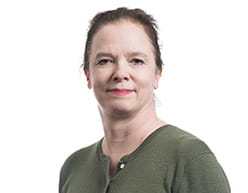Over 18 months we have brought together over 160 leaders and conducted two YouGov polls across Manchester, Exeter, Birmingham and London to examine real estate’s role in providing the platform for society to thrive.
The pandemic, which has accelerated conversations around social value and climate change, arguably makes the need to understand how the built environment can drive prosperity in cities and urban centres even more pressing.
Trowers is packed full of people who are passionate about real estate in all its forms, and particularly passionate about the built environment in which we live and work and what it actually means to people’s lives.This is not just the financial outcomes generated by the built environment, but the social and societal benefits that places can generate.
We’ve undertaken research over the past five years looking at how you measure societal value. Out of those discussions, other themes emerged which deserved further thought, such as what makes a place prosperous? We realised this was a much bigger topic than we could tackle ourselves so we embarked on an initiative to go round the country hosting workshops with local authorities, developers, investors and consultants in different communities. What people perceive and indeed want in terms of prosperity has been at the heart of the conversation at our City Exchanges.
Recently, communities across the world have been through unprecedented change and some of the toughest periods in living memory. It could change the way we work, how we engage and support those around us, and the choices we make about where and how we live. The extent of these changes is largely yet to be realised – it may be a transient period with minimal impact on the way our city functions in the long term or it may create some significant changes in dictating where we choose to live and work. From our findings so far, the experience of lockdown is exacerbating many of the issues that our towns and cities were already facing. The importance of where and how we live and people's mental and physical health has never been in greater focus.
Cities appear to concentrate inequality, with a growing challenge around housing affordability and urban design choices that lock people out of the benefits cities can provide. The division between those who have access to outdoor space and homes with rooms to work from as opposed to those in small flats with no outdoor space or indeed indoor space has been put under the spotlight. How can we create places with the focus on the long term resilience of the UK? How can we revitalise town and cities centre, investing and developing in a way that is inclusive?
From a personal perspective, I come from a small town in Yorkshire called Dewsbury, an old mill town that has been in decline for many, many years, and where a lot of the residents feel left out of the economic growth enjoyed elsewhere in the country.
Our challenge to the industry is to ask: "How do you breathe life back into a town like Dewsbury which had a great market, it had a great town centre and now doesn't?" Does the period we have just been through give Dewsbury an opportunity to reinvent itself? It's these kinds of personal and professional perspectives that we are seeking to understand to see how real estate can play a more active role in facilitating prosperity across the UK from the smallest village to the largest city.
As the national agenda shifts to economic and political rebalancing of cities across the country, it’s increasingly important that an understanding of local context and dynamics informs development and regeneration.
To view the key findings and themes that have emerged from this campaign, please download the report here.
